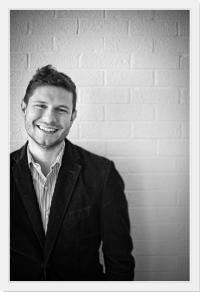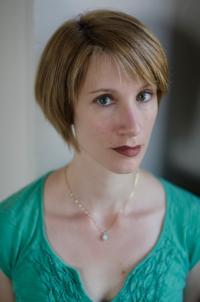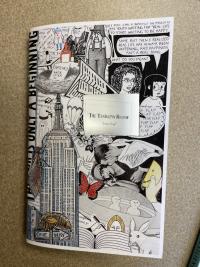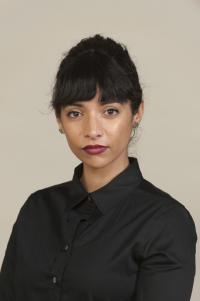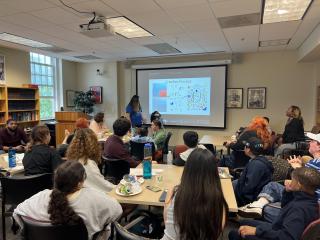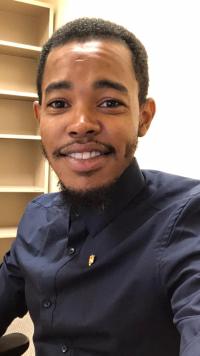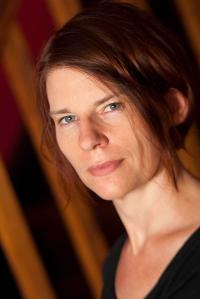John and Anne Long Faculty Fellowship
The Long Faculty Fellowship was established in 2020 through the generous gift of an endowment from John and Anne Long.
The Long Faculty Fellowship supports rigorous and innovative undergraduate pedagogy. Current and past fellows represent outstanding instructors with a sustained commitment to the department’s intellectual community and to curiosity, capaciousness, and imagination in and beyond the classroom.
Current Fellow
Gerard Passannante (2024–25)
Professor Passannante will use the time afforded by the Long Faculty Fellowship to develop a course that puts imagined museums into dialogue with real institutions, as students consider the museum as a critical performance space, a site of political and social resistance, and a site of cultural imperialism and theft. In addition to working with exciting texts including: Edie Fake’s 2014 Memory Palaces, a collection of drawings that reimagine the facades of forgotten queer night clubs from the 1980s in Chicago; William J. Wilson’s Afric-American Picture Gallery (1859), which uses ekphrasis to address the lack of African American representation in the spaces of the 19th-century museum; the recent creative non-fiction of Brad Fox’s The Bathysphere Book (2023), which creates a space of reflection for the drawings and observations of early deep-sea explorers and Emily St. John Mandel’s Station 11 (2014), the class centers experiential learning. This will entail visits to area collections and archives, and conversations with the people who work there, including curators and directors at the Phillips collection, the Smithsonian National Museum of African American History and Culture, and the Smithsonian Museum of Natural History. The course will also introduce students to guests like the author Chloe Aridjis and filmmaker Jem Cohen.
Past Fellows
Emily Mitchell (2023–2024)
With the support of the Long Faculty Fellowship, Professor Emily Mitchell developed ENGL 378: Special Topics in Independent Literary Publishing. This course introduces students to the nuts and bolts of the editorial process: production, distribution, marketing, and all the aspects of putting together a quarterly. During the last third of the semester, the students collaborated on the creation of their own literary journal, The Terrapin Review, and launched it with great success. The archive for the Terrapin Review can be viewed here.
"The course release provided by the fellowship allowed me to read extensively about the history and contemporary debates surrounding literary magazines; to delve into and consider approaches to teaching skills related to editing, copyediting, design and layout, proofreading, budgeting and funding, promotion and distribution. I was able to connect with other units within UMD English, like BookLab and CLCS, and with external organizations, including New England Review and Bennington Review, arranging class visits from editors and readers for those publications for the class." — Emily Mitchell
Sharada Balachandran Orihuela (2022–2023)
As a Long Faculty Fellow, Professor Sharada Balachandran Orihuela reformulated ENGL 361: Recovering Oral Histories, a course originally developed by Professor Merle Collins, and spent time raising funds in order to transport students to the organization. ENGL 361 is the only non-PWP service-learning course offered by the department and contributes to the General Education program, specifically by meeting the Humanities and Scholarship in Practice requirements. The course pairs UMD undergraduate students with elementary, middle, and high school students in the Prince George’s County Public School System who participate in an afterschool program organized by the Cultural Academy for Excellence (CAFE), a youth-based program focused on developing passion and discipline for learning and academic achievement located in Mt. Rainier. CAFE serves largely BIPOC and second-generation children of immigrant parents.
The highlight of the semester was having a pizza party on campus, where UMD and CAFE students presented a short work of oral history together. The students used different media forms to capture this oral history, and each pair presented their work to the entire group. The CAFE trip to UMD culminated in a tour of the UMD Farm, where both CAFE and UMD students interacted with different livestock from cows and sheep to horses.
"This class is a prime example of the rigorous and imaginative courses supported by the Long Faculty Fellowship, and a course whose community partnership goals are aligned with the fellowship’s and university’s mission to be more responsibly engaged in the community." — Sharada Balachandran Orihuela
Chad Infante (2021–2022)
For his Long Faculty Fellowship, Professor Chad Infante developed the course “Justice, Revenge, and the Literary Tradition.” The course features a broad historical arc and a range of classical and canonical texts, all of which are paired with contemporary African American and Indigenous texts and films. This survey of literary representations of revenge from Greek tragedy to contemporary literature aims to explore the importance and complications of justice and the law in civil society.
The course dovetails with the university's commitment to civic engagement and outlines a collaboration with the Civicus Program and the off-campus organization the Vera Institute of Justice of DC. Students benefit from archival assignments making use of the collections in Hornbake Library focused on the University of Maryland’s own activist and political history.
Maud Casey (2020–2021)
The Long Faculty Fellowship supported Professor Maud Casey's undergraduate course, titled “Narrating Madness.” This course contributes to the Health, Medicine, and Humanities minor and explores "the formal methods by which fiction takes us beyond diagnosis to offer the inimitable texture of a particular consciousness in extremis."
“The Long Fellowship allowed me the time to develop a course I had long been thinking about, a course that allowed for a semester-long meditation on the ways art and storytelling have deepened our understanding of what mental illness is and is not. It funded a collaboration with Red Dirt Studios and, in particular, with the artist and co-director of Red Dirt, Leslie Holt. Much of what I had originally planned for the course—a workshop with the students at Red Dirt Studio, a collaboration with Book Lab—were, as were all things, changed by the pandemic (the course ran in Spring 2020). The course's subject felt even more urgent, and the results were deeply moving. Leslie was able to visit on Zoom, and the students, with the help of the stellar and invaluable undergraduate TA, Ethan Cheng, produced a journal that is a testament to their resilience and the community we built during that time." — Maud Casey
The journal, designed by Pierce Brown, can be found here in full.


